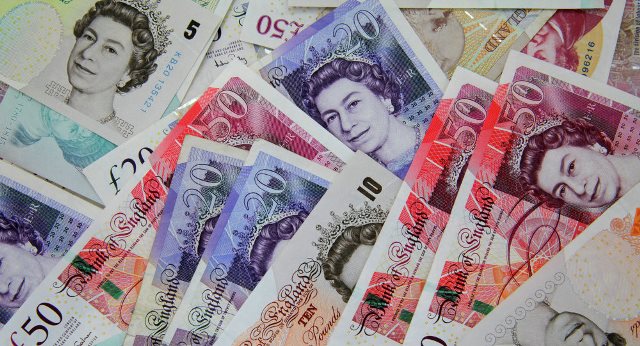Sterling hovered just off two-month highs against the euro and the dollar on Thursday as uncertainty crept back in a day after British Prime Minister Theresa May won a confidence vote in parliament.
Lawmakers backed May’s government 325 to 306, just 24 hours after handing her European Union withdrawal deal a crushing defeat that left Britain’s exit from the bloc in disarray.
The pound has strengthened in recent weeks on growing confidence that a no-deal or hard Brexit is unlikely, touching a two-month high to the euro on Wednesday and a similar milestone against the dollar on Monday.
But with this week’s two key votes in parliament over, some caution appeared to be setting in, analysts said.
“You could say that in the last few days, many investors have been betting that there will be a delay of Brexit or bets that there will not be a hard Brexit,” said Jane Foley, a senior currency strategist at Rabobank.
“Actually we have not had anything concrete to support this, so we need something in the next week to really keep investors’ confidence that a hard Brexit is not going to happen.”
By 0915 GMT, the pound dipped 0.1 percent to $ 1.2866, holding below a two-month high hit on Monday just above $1.2930.
Against the euro, sterling also dipped 0.1 percent to 88.56 pence, having strengthened to around 88.40 pence in the previous session.
After the confidence vote late on Wednesday, May met several party leaders, but the main opposition leader, Labour’s Jeremy Corbyn, refused to hold talks unless a no-deal Brexit was ruled out.
Mohammed Kazmi, a portfolio manager at UBP in Geneva, said that investors were now likely to be more focused on Brexit scenarios that are becoming skewed in the direction of a softer exit from the European Union, or an extension of Article 50 that could delay the exit and pave the way for a second referendum.
“Either of these scenarios should play out positively for UK assets, especially as it is clear that cross-party consensus on a Withdrawal Agreement will lead to the government having to rule out a no-deal Brexit scenario as well, removing this fear for markets and narrowing the possible outcomes,” he said.
Indeed, trading in currency options markets show an increasing bias towards bets that Britain will extend its deadline to leave the European Union – a positive sign for sterling in the near term.
Three-month implied volatility, a measure of expected swings in the currency, a contract encompassing the end-March period, dropped to the lowest in more than two months to 11.225 volatility, well off 2-1/2-year highs around 15 volatility hit in December.












